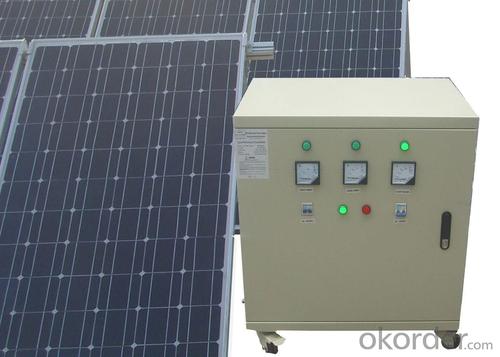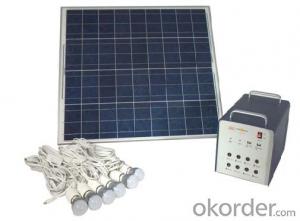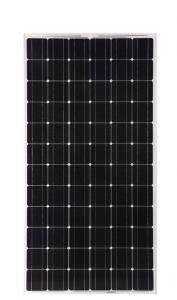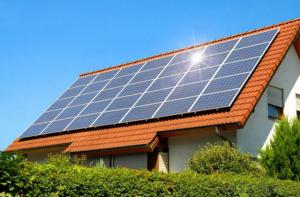CNBM Solar Energy Systems Austin TX - CNBM-K7 (3kW)
- Loading Port:
- China Main Port
- Payment Terms:
- TT or L/C
- Min Order Qty:
- 1 set set
- Supply Capability:
- 1000 sets per month set/month
OKorder Service Pledge
OKorder Financial Service
You Might Also Like
Brief Introduction of Solar Energy System CNBM-K7 (3KW)
CNBM Home System-K7 (3KW) has a wonderful capacity.It can be used in factory,home,school and other CNBM Home System-K7 (3KW) consist of the solar modules,charge controller,inverter and battery banks.
CNBM International is highly recognized by its business partners and clients all over the world and has obtained rapid development under the spirit of win-win .
With CNBM Home System-K7 (3KW),
We will carry on the mutual beneficial,innovative and revolutionary trading structure as we did before,create value for our employees,share holders and clients and benefit the whole society in our future development.Please contact us ,if you have interest in CNBM Home System-K7 (3KW),don’t hesitate!
The Sketching of Solar Energy System CNBM-K7 (3KW)
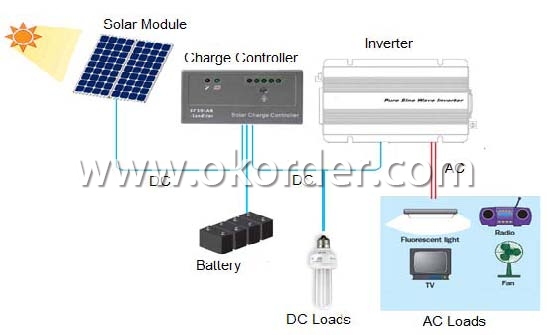
Components of Solar Energy System CNBM-K7 (3KW)
PV Array:
Convert sunlight instantly into DC electric power. Formed by the solar modules (also called photovoltaic modules) in accordance with the system requirements for series and parallel.
Solar Charge Controller:
A charge controller may be used to power DC equipment with solar panels. The charge controller provides a regulated DC output and stores excess energy in a battery as well as monitoring the battery voltage to prevent over charge or over discharge. An inverter can be connected to the output of a charge controller to drive AC loads.
Inverter:
Converts DC output power of photovaltaic soalr panels into standard AC power for use in the local off-grid electrical network. It is a critical component in a photovoltaic system, allowing the use of ordinary commercial appliances.
Battery banks:
Stores energy when there is an excess coming in and distribute it back out when there is a demand. Solar PV panels continue to re-charge batteries each day to maintain battery charge.
Technical data of Solar Home System CNBM-K7 (3KW) | ||
Inverter | Rated load power | 3000W |
Output wave | Pure sine wave | |
Output voltage | DC 48V | |
Output frequency |
AC:220V | |
Precision of output | 50HZ/60HZ | |
Precision of output frequency | ±6% | |
Solar panel | Pmax | 245W*12PCS |
Vmp | 31.1V*2 | |
Imp | 7.89A*6 | |
Charger | Charger voltage & current | 48V /30A*3PCS |
Battery | Capacity | 12V 135AH*4*3PCS |
Support | Aluminum | 2PCS/SET*6 |
Power box | Spray paint iron box,with input,output,ammeter,voltmeter,master swith and so on. | |
Package of Solar Home System CNBM-K7 (3KW) | ||||
Part | Size(L*W*H mm) | Weight(kg) | 20’(pcs) | 40’(pcs) |
Power box | 800*540*780 | 70 | 20 Sets | 26 Sets |
Solar panel | 1655*992*40 | 280 | ||
Battery | 1100*520*650 | 600 | ||
Factory Picture of Solar Energy System CNBM-K7 (3KW)
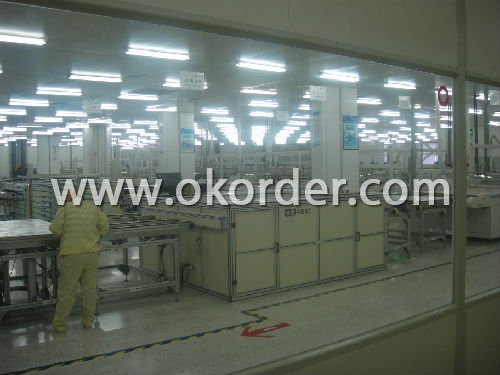
Package Picture of Solar Energy System CNBM-K7 (3KW)
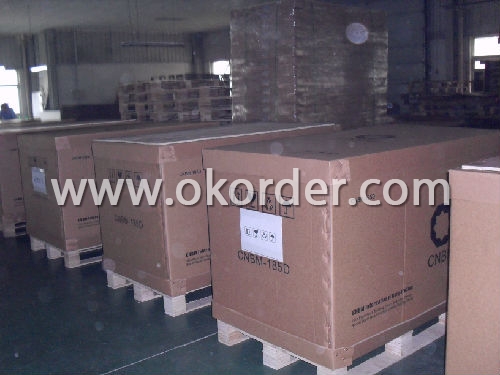
- Q: Can solar energy systems be used for powering water treatment plants?
- Yes, solar energy systems can definitely be used for powering water treatment plants. In fact, solar power is being increasingly utilized as a sustainable and cost-effective solution for powering various industrial processes, including water treatment. Solar energy can be harnessed through photovoltaic (PV) panels to generate electricity, which can then be used to power the water treatment plant's operations. There are several advantages to using solar energy for water treatment plants. Firstly, solar power is a renewable and abundant energy source, meaning it does not deplete natural resources and is available almost everywhere. This makes it a highly sustainable option for powering water treatment plants, especially in areas with ample sunlight. Additionally, solar energy systems have a low environmental impact compared to traditional fossil fuel-based power sources. They produce no greenhouse gas emissions during operation, reducing the carbon footprint of the water treatment plant and contributing to overall environmental preservation. Moreover, solar power can provide a reliable and consistent source of energy for water treatment plants. Advances in energy storage technologies, such as batteries, allow excess energy generated during the day to be stored and used during periods of low sunlight or high energy demand. This ensures a continuous and uninterrupted power supply for the water treatment plant, even during cloudy or nighttime conditions. Furthermore, solar energy systems can significantly reduce operating costs for water treatment plants. Once the initial investment in solar panels and associated equipment is made, the operational costs become minimal. This is because sunlight, the fuel for solar energy, is free. Consequently, the reliance on expensive and limited fossil fuels for electricity generation is eliminated, leading to long-term cost savings for the water treatment plant. In summary, solar energy systems are a suitable and efficient option for powering water treatment plants. They offer numerous benefits, including sustainability, environmental friendliness, reliability, and cost-effectiveness. As the world continues to prioritize renewable energy sources, the integration of solar power into water treatment plants will likely become more prevalent.
- Q: Can solar energy systems be installed on military bases or installations?
- Yes, solar energy systems can be installed on military bases or installations. In fact, many military bases have already embraced solar energy as a sustainable and cost-effective solution. These systems not only help reduce dependence on fossil fuels but also enhance energy security and resilience for military operations. Furthermore, solar installations on military bases contribute to the overall goal of transitioning towards renewable energy sources and reducing carbon emissions.
- Q: Are there any limitations to the amount of electricity a solar energy system can generate?
- Yes, there are limitations to the amount of electricity a solar energy system can generate. The primary limitation is the availability of sunlight. Solar panels require direct sunlight to generate electricity, so factors such as weather conditions, geographical location, and time of day can affect the amount of sunlight received. Cloudy or rainy days can significantly reduce the electricity output of a solar energy system. Another limitation is the physical space available for installing solar panels. The size and number of panels that can be installed depend on the available roof or ground space. Limited space can restrict the overall capacity of the system and, consequently, the amount of electricity it can generate. Additionally, the efficiency of solar panels is a determining factor. The efficiency of converting sunlight into electricity varies depending on the type and quality of solar panels used. Higher efficiency panels can generate more electricity than lower efficiency ones. Furthermore, solar energy systems are also subject to degradation over time. Solar panels experience a gradual decrease in efficiency as they age due to factors like exposure to sunlight, temperature fluctuations, and environmental conditions. This degradation can reduce the overall electricity generation capacity of the system. Finally, energy storage is a limitation. Solar energy systems generate electricity during the day, but the demand for electricity often remains constant throughout the day and night. Without an efficient energy storage system, excess electricity generated during the day is wasted if not used immediately. Therefore, the inability to store excess electricity limits the overall amount that can be generated by a solar energy system. In summary, while solar energy systems offer a sustainable and renewable source of electricity, there are limitations to the amount they can generate due to factors such as sunlight availability, physical space, panel efficiency, system degradation, and energy storage capabilities.
- Q: Can solar energy systems be used for powering schools?
- Yes, solar energy systems can be used for powering schools. In fact, many schools around the world are now embracing solar power to meet their energy needs. Solar panels can be installed on rooftops or in open areas within school premises to generate clean and renewable electricity. This not only reduces the school's carbon footprint but also helps save on electricity costs in the long run. Additionally, solar energy systems can also be educational tools, allowing students to learn about and engage with sustainable energy practices.
- Q: How does the performance of solar panels vary based on the altitude?
- The performance of solar panels can vary based on altitude due to several factors. One of the main factors is the amount of sunlight that reaches the panels. As altitude increases, the atmosphere becomes thinner, allowing for more direct sunlight to reach the panels. This can result in increased efficiency and power output of the solar panels. Additionally, the temperature at higher altitudes tends to be lower, which can also positively impact the performance of solar panels. Solar panels operate more efficiently at lower temperatures, as excessive heat can cause a decrease in their efficiency. Therefore, the cooler temperatures at higher altitudes can help to maintain the panels' optimal operating temperature, leading to improved performance. On the other hand, altitude can also have some negative effects on solar panel performance. At higher altitudes, there may be an increase in snowfall or ice formation, which can obstruct the sunlight and reduce the efficiency of the panels. Additionally, extreme weather conditions such as high winds or hailstorms that are more prevalent at higher altitudes can potentially damage the panels, affecting their performance. It is important to note that the overall impact of altitude on solar panel performance may vary depending on specific geographical locations and local climate conditions. Therefore, it is recommended to consider these factors and consult with experts or conduct thorough research when installing solar panels at different altitudes to maximize their performance.
- Q: Can solar energy systems be used for powering off-grid eco-resorts?
- Yes, solar energy systems can definitely be used for powering off-grid eco-resorts. Solar panels can be installed on the roofs or in open areas of the resorts to harness sunlight and convert it into electricity. This renewable energy source can provide a sustainable and reliable power supply, allowing eco-resorts to operate independently from the grid. Additionally, solar energy systems can help reduce carbon emissions and promote eco-friendly practices in the hospitality industry.
- Q: Can solar energy systems be used for powering electric vehicles?
- Yes, solar energy systems can be used for powering electric vehicles. Solar panels can be installed on the roof of the vehicle or in a stationary location to capture sunlight and convert it into electricity. This electricity can then be used to charge the vehicle's battery, reducing or eliminating the need for grid electricity. However, the efficiency and range of solar-powered electric vehicles may vary depending on factors such as solar panel size, weather conditions, and energy consumption of the vehicle.
- Q: How long do solar energy systems typically last?
- Solar energy systems typically last for about 25 to 30 years.
- Q: How much space is needed for installing a solar energy system?
- The amount of space needed for installing a solar energy system depends on various factors such as the size and type of the system, the energy requirements, and the available sunlight. Generally, a small residential solar energy system can be installed on rooftops or in a backyard with an area of about 100-400 square feet, while larger systems for commercial or industrial use may require several acres of land. It is important to conduct a site assessment to determine the suitable space for installation based on individual needs and local conditions.
- Q: How do solar energy systems impact the health of the population?
- Solar energy systems have a positive impact on the health of the population. By reducing reliance on fossil fuels, solar energy helps to decrease air pollution and the associated respiratory problems. Additionally, the use of solar energy reduces greenhouse gas emissions, contributing to improved air quality and mitigating the negative effects of climate change on public health.
Send your message to us
CNBM Solar Energy Systems Austin TX - CNBM-K7 (3kW)
- Loading Port:
- China Main Port
- Payment Terms:
- TT or L/C
- Min Order Qty:
- 1 set set
- Supply Capability:
- 1000 sets per month set/month
OKorder Service Pledge
OKorder Financial Service
Similar products
Hot products
Hot Searches
Related keywords



